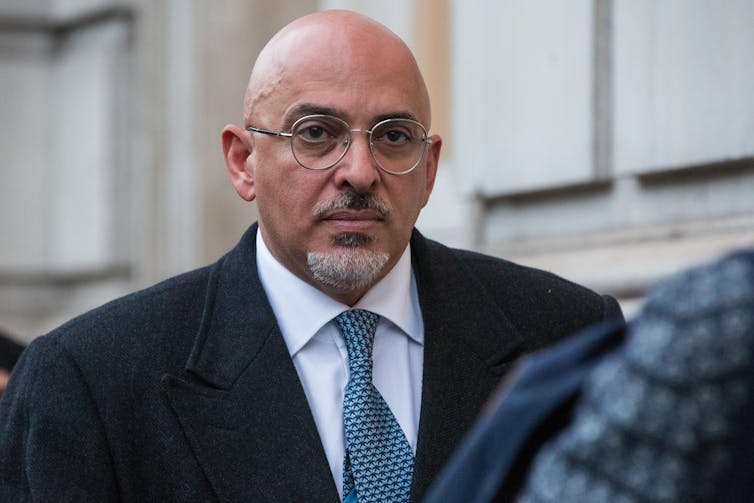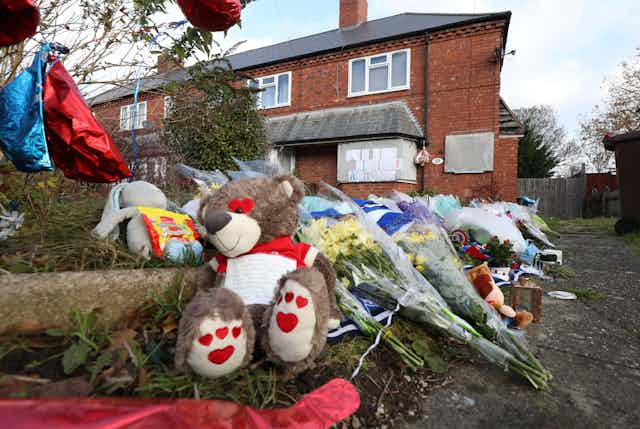The UK government has launched a national review into the horrific abuse and murder of Arthur Labinjo-Hughes. Arthur was six years old when he was killed in Solihull by his stepmother, Emma Tustin. He had suffered months of physical and emotional torture by Tustin and her partner, Arthur’s birth father, Thomas Hughes.
Tustin was found guilty of murder and child cruelty and sentenced to a minimum of 29 years in prison. Hughes was found guilty of manslaughter and child cruelty and sentenced to 21 years. Nadhim Zahawi, the secretary of state for education, has said the purpose of the national review is to establish the circumstances leading up to Arthur’s death and “determine what improvements are needed by the agencies that came into contact with him in the months before he died”.
The government is yet to announce the parameters of the review, but it will be led by a panel of national experts, and is likely to include interviews with all of the practitioners involved as well as Arthur’s relatives. The review is also likely to include an examination of relevant documents, such as police and children’s services records, and to consult other practitioners and families with experience of the child safeguarding system in the area.
Such reviews can contribute to more effective and appropriate child protection policy and practice. The government commissioned inquiry into the response to alleged child sexual abuse in Cleveland, is believed to have had a major impact on practitioner and public awareness of this phenomenon. But there are many problems with how and why such reviews are conducted.
There is a well established system in England for conducting local reviews or inquiries in cases of fatal or other serious incidents of child abuse or neglect. Solihull council began such a review following Arthur’s death, but suspended it during his parents’ trial. A similar review, into the response by West Midlands Police to concerns about Arthur, was completed in June 2020 and was expected to be published soon.
Both of these reviews have been abandoned, replaced not only by the national review, but also by an inspection of the safeguarding agencies in Solihull to whom Arthur was known. This inspection will be carried out by four national bodies covering social care, health, police and probation. It will also include an examination of the effectiveness of all agencies responsible for protecting children at risk of abuse and neglect in Solihull.

My concern is that government ministers have let their emotions get the better of them. While I can sympathise with this given the nature of Arthur’s case, I believe they have not properly thought through the decision to replace two planned local reviews with three nationally-driven reviews – especially given that there were no immediately apparent national issues. I am anxious that leading the review from central government will be more cumbersome and time consuming – and delay the lessons we can learn from this case.
What have we learned?
Over the past 50 years, there have been dozens of nationally significant reviews into similar cases, including the investigations into the deaths of Victoria Climbié and Baby P, as well as the crimes of Jimmy Savile. Indeed, there are two national reviews into child protection and child abuse currently taking place in England.
The child protection charity, the National Society for the Prevention of Cruelty to Children, found that over 1,500 (primarily local) child abuse and neglect reviews had been undertaken in England, Scotland and Wales since 1945. National and local reviews have been of some benefit. Practitioners have become more knowledgeable about the risks that children face from abuse and neglect, and improved their response to these cases.
But over the course of these reviews there have been many hundreds of child deaths due to abuse and neglect. Clearly, the value of these reviews is limited.
The biggest problem with these reviews is that they can detract attention from other critical child protection issues, such as the enormous pressures social workers and other practitioners have to work under. Such risks are clear in Arthur’s case, as evidenced by the readiness of politicians to criticise how agency workers supposedly responded to concerns about Arthur. Julian Knight, MP for Solihull, demanded that it be established “who failed Arthur and how he was failed … the investigation [must focus] upon the clear breakdown in partnerships between the likes of social services, the police and educators. Why on earth weren’t they talking to each other?”.
Timothy Loughton, a former children’s minister, claimed there had been a “lack of data sharing” and “joined up working”. These criticisms came only after having access to all of the information from the criminal trial – information that was not available to agency workers when they were conducting their investigations.
Missing resources
Many of the problems in child protection are not due to purported inadequacies of individual workers, but rather the insufficiency of resources. There have been major cuts over the past decade in funding for public services responsible for child protection.
More than 1,000 children’s centres have closed, there are 30% fewer school nurses and funding to women’s refuges has been reduced by £7 million. Alongside these cuts, the number of children in the population has increased, as have the demands upon child protection services.
The national review and the associated inquiries may have some value, but this cannot take away from the hundreds of inquiries that have gone before and the many hundreds of children who have continued to die from abuse and neglect. Society has a moral duty to Arthur to appreciate what is right about child protection in England but also to recognise what is really wrong with it.

